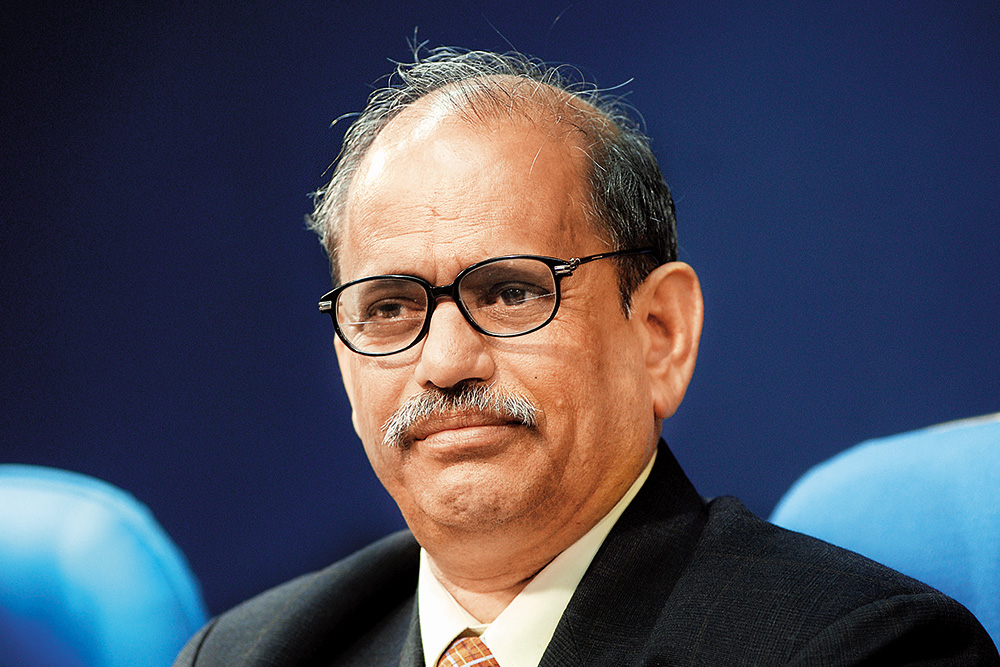The diverse nature of Indian economy, society and polity calls for a high degree of decentralisation in decision making. However, a striking feature of Indian fiscal federalism is its high degree of centralisation. The heavy centripetal bias inherent in the constitutional assignment was compounded by centralised development strategy followed during the first four-and-a-half decades after independence. The trend was not substantially reversed even after liberalising reforms were introduced in 1991.
The seventh schedule to the Indian constitution assigns the legislative domains in terms of union, state and concurrent subjects. However, to mitigate the revenue-expenditure mismatch in the assignment system, the constitution provides for the appointment of a finance commission every five years, which recommends sharing of fiscal resources with states. By and large, these are general purpose transfers to enable states provide comparable levels of public services at comparable revenue effort. However, considering large inter-state disparities, Centrally sponsored schemes are introduced to ensure minimum standards of meritorious services, in which both the Centre and states share cost.
Human development, in which states have a predominant role to play, should receive the required focus. At the same time, ensuring physical infrastructure to fast-track manufacturing to create employment opportunities requires significant Central intervention. Furthermore, anti-poverty interventions in addition to education, healthcare and skill development are important. Equally important is the focus on ensuring export competitiveness, which requires efficient infrastructure, security, effective governance, including the ease of doing business, enforcement of property rights and timely enforcement of contracts. Intergovernmental cooperation is critical to achieve these goals.
Centrally sponsored schemes are supposed to secure minimum standards of important meritorious services to citizens. But, there is much that is wrong with their design and implementation. With 28 umbrella schemes, there is a thin spread of resources, which defeats the idea of ensuring minimum standards in them. Within these schemes, there are several interventions which not only create compliance problems but also blur their basic objective. In the case of the Sarva Shiksha Abhiyan, for example, there are 42 different interventions, and each state must prepare their budgets for these 42 interventions separately. Their allocations can be changed only after getting the approval of an empowered committee which is chaired by a Union secretary. In the process, meeting compliance requirements to secure funds becomes the principal objective rather than achieving minimum standards of service delivery. In fact, there is no attempt to define the minimum standards required to be achieved in any of the schemes. At the end, these schemes turn out to be the instruments of distributing political patronage to secure political gains.
Although much is talked about cooperative federalism, the basic relationship among governments is one of competition, both vertical and horizontal. Efficient intergovernmental competition requires a measure of competitive equality and cost-benefit appropriability, so that one state does not pass on the burden of its schemes to non-residents. Unless this is ensured, the more powerful actors can ride over the rest. Therefore, prevention of predatory competition is necessary for development.
There are transaction costs to get the parties together to negotiate promoting intergovernmental cooperation and regulating and monitoring competition. In the initial years after independence, when a single party ruled both the Centre and states, these were done informally with the high command dictating solutions. Consequently, formal institutions for intergovernmental bargaining and conflict resolution did not evolve. In the multiparty democracy, with the parties ruling states being different from the ones at the Centre, there is a galore of differences. Therefore, the need for an effective institution becomes extremely important in ensuring developmental focus. This remains a major vacuum in Indian fiscal federalism.
The National Development Council, which was supposed to resolve differences, has evolved into an infrequent speech-making forum. The Inter-State Council, which was set up based on the recommendation of the Sarkaria Commission, ceases to be either important or impartial, as it is placed in the Union home ministry. The GST Council provides a good example of what could be done to deal with intergovernmental calibration of policies, but, even here, the pandemic has shown its incapacity to deal with conflicts relating to the compensation for the loss of revenue. It is important to evolve an important institution for intergovernmental transactions to better reap the gains from Indian fiscal federalism.
(The author is a former director, National Institute of Public Finance and Policy, and member of the 14th Finance Commission. The views are personal.)











